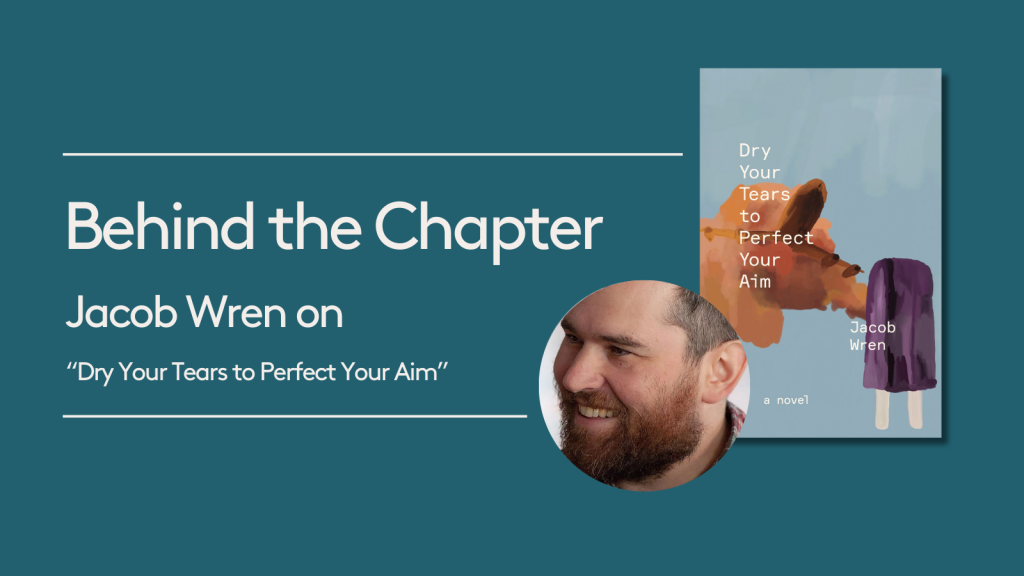Behind the Chapter with Jacob Wren

Today, we invite Jacob Wren to the blog to share thoughts on a chapter from his new novel, Dry Your Tears to Perfect Your Aim! Read on for insights into the initial inspirations and questions that led Jacob to draft the first chapter of his book. Off to Jacob!
Perhaps the first impulse for Dry Your Tears to Perfect Your Aim came many years ago when I turned on the television and saw images of the so-called Shock and Awe campaign in Iraq. My first impulse was: I want to go there, to feel it for myself. Not to watch televised images of people being killed by U.S. missiles but to put myself in the missiles path and possibly be killed myself. I knew it would accomplish nothing, would solve nothing, but nonetheless I had such an intense impulse that I wanted to go. Of course I didn’t. I’m not a suicidal adventurer, I’m a depressed writer. So instead of going I chose to write about the feeling, try to understand it, to unpack it in all its problematic and colonial aspects. To write through it into the politicized yet dreamlike world of my subconscious and find out where it leads.
On the other side of this impulse, I suspect, is a desire (or literary desire) for utopia, for a better world. Or at least to know, if we really try, how much improvement may or may not be possible. Utopia is a classical theme for political literature and I’m searching for a different way into the heart of the matter. Obviously one of the questions I’m asking myself is: if there was a more utopian place, how would it protect itself, how would they prevent themselves being crushed by the military or even fascist forces that are so prevalent in the world. All of this is also wrapped up in the desire for a different kind of anti-war novel.
It was only much more recently that I heard Dry Your Tears to Perfect Your Aim referred to as autofiction. I certainly wasn’t thinking of it as autofiction when I was writing it, but in retrospect the label makes a strange kind of sense to me. A different kind of anti-war novel meets a different kind of autofiction. The protagonist is certainly the closest character to myself that I’ve ever written, too close for comfort, expressing so many of my conflicted thoughts yet doing things I would never have the guts to do in real life. And yet imagining myself doing things I would never do, in some kind of literary paradox, seems to bring the content closer to me rather than further away. That moment when I saw the explosions on television and thought ‘I want to go there’ was a strange moment of truth. And, at the same time, that feeling of wanting to go there, to be at risk, to be closer to death and closer to the painfully unbearable reality of the situation, was also a lie to save myself the shame of being endlessly complicit.

